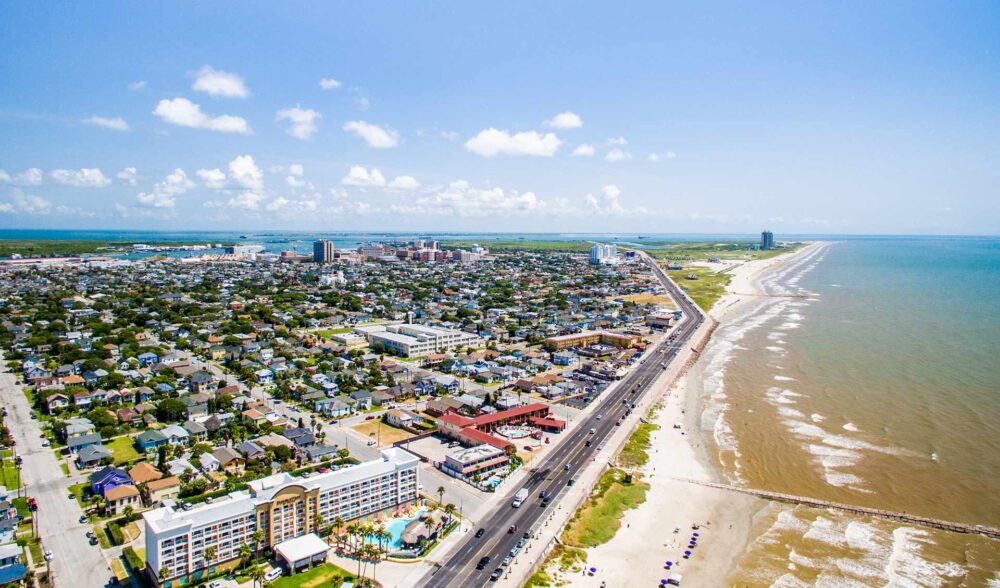Environment America has released an annual report that identifies excessive levels of pollutants found through regular testing at beaches throughout the United States. Numerous Texas beaches show that researchers frequently identified fecal bacteria and other harmful toxins in the water. The report states that 82 percent of Gulf Coast beaches, including those in Texas, were considered “potentially unsafe” for at least one day during 2020.
Beaches in Nueces County and Brazoria County ranked in the top five most frequently polluted beaches in the state. Cole Park, south of Corpus Christi, was the worst offender in the state. Of the 68 water quality tests, unsafe levels of bacteria associated with feces were found 91 percent of the time. Nearby Ropes Park also scored poorly, reporting unsafe levels of E. Coli 74 percent of the time.
John Rumpler, the senior director for the Clean Water for America Campaign and senior attorney for Environment America helped draft the “Safe for Swimming” report. Rumpler said many people aren’t aware of contamination and don’t typically recognize the threat until later when an illness sets in.
“They go to the beach, lay in the water, and have fun,” Rumpler said in a videotaped interview. “Then, a few days later, somebody has nausea or diarrhea, or a skin rash.”
Rumpler explained that the pollution is the result of a lack of water infrastructure that puts Texans at risk.
“We’ve paved over so much of the landscape that when we have heavy rains and the water has no place to go,” explained Rumpler. “The rain is picking up bacteria, grease, oil, and toxic chemicals and sweeping it all off into the sewage system causing an overflow.”
Fecal bacteria can come from numerous sources. Improperly functioning sewage treatment plants or septic systems are responsible for at least some pollution, while farming and agriculture activities are frequently blamed for being the worst offenders.
Cow manure and chicken manure are major sources of E. Coli, a bacteria that is responsible for digestive problems like vomiting. Most of the time, people infected with E. Coli will recover on their own, but it can cause serious health problems particularly for people with weakened immune systems and health problems.
Rumpler hopes the report helps to spread awareness about the potential problems associated with runoff pollution. The report comes as the U.S. House of Representatives debates a water infrastructure bill that will provide modest funding for a variety of programs targeting polluted waterways including those along the Gulf Coast in Texas.
Texas monitors water quality levels at 55 state beaches on a weekly basis during the season and bi-weekly in the offseason. Thirty-one percent of the beaches tested last year were considered “potentially unsafe” at least 20 percent of the time.
Texans can check the website TexasBeachWatch.com to see an up-to-the-minute map of water conditions at Texas beaches. Not all of the beaches are monitored. For example, the more than 100 mile stretch from Atwood Park north of Boca Chica to Mustang Island is unmonitored. The only beach showing unsafe levels on the day of this writing is Sylvan Beach in La Porte, Texas.

